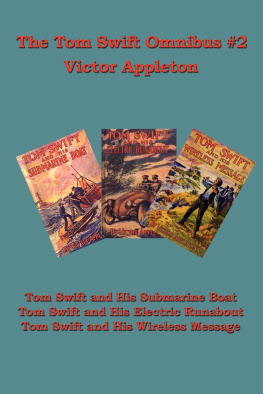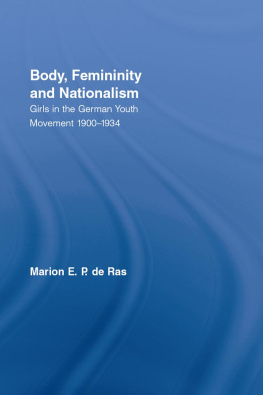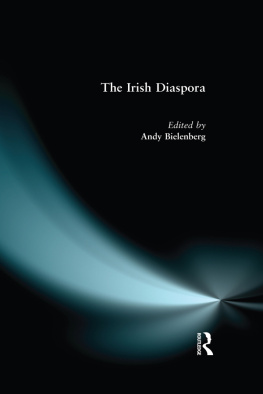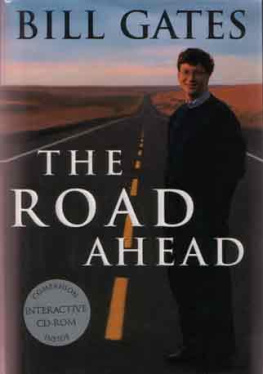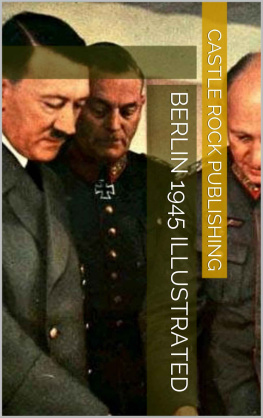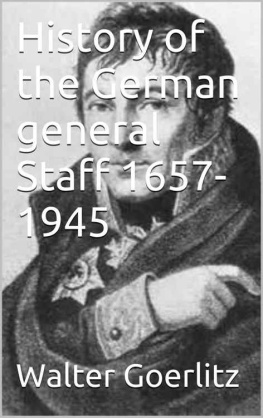Bielenberg - The Past is Myself & The Road Ahead Omnibus: When I Was a German, 1934-1945
Here you can read online Bielenberg - The Past is Myself & The Road Ahead Omnibus: When I Was a German, 1934-1945 full text of the book (entire story) in english for free. Download pdf and epub, get meaning, cover and reviews about this ebook. year: 2011, publisher: Transworld, genre: Non-fiction. Description of the work, (preface) as well as reviews are available. Best literature library LitArk.com created for fans of good reading and offers a wide selection of genres:
Romance novel
Science fiction
Adventure
Detective
Science
History
Home and family
Prose
Art
Politics
Computer
Non-fiction
Religion
Business
Children
Humor
Choose a favorite category and find really read worthwhile books. Enjoy immersion in the world of imagination, feel the emotions of the characters or learn something new for yourself, make an fascinating discovery.

- Book:The Past is Myself & The Road Ahead Omnibus: When I Was a German, 1934-1945
- Author:
- Publisher:Transworld
- Genre:
- Year:2011
- Rating:4 / 5
- Favourites:Add to favourites
- Your mark:
- 80
- 1
- 2
- 3
- 4
- 5
The Past is Myself & The Road Ahead Omnibus: When I Was a German, 1934-1945: summary, description and annotation
We offer to read an annotation, description, summary or preface (depends on what the author of the book "The Past is Myself & The Road Ahead Omnibus: When I Was a German, 1934-1945" wrote himself). If you haven't found the necessary information about the book — write in the comments, we will try to find it.
Bielenberg: author's other books
Who wrote The Past is Myself & The Road Ahead Omnibus: When I Was a German, 1934-1945? Find out the surname, the name of the author of the book and a list of all author's works by series.
The Past is Myself & The Road Ahead Omnibus: When I Was a German, 1934-1945 — read online for free the complete book (whole text) full work
Below is the text of the book, divided by pages. System saving the place of the last page read, allows you to conveniently read the book "The Past is Myself & The Road Ahead Omnibus: When I Was a German, 1934-1945" online for free, without having to search again every time where you left off. Put a bookmark, and you can go to the page where you finished reading at any time.
Font size:
Interval:
Bookmark:
Christabel Bielenberg, an Englishwoman of Irish descent, married a German lawyer in 1934. She lived through the war in Germany as a German citizen under the horrors of Nazi rule and Allied bombings. The Past is Myself is her story of that experience and an unforgettable portrait of an evil time.
Following the extraordinary success of her wartime memoir, The Past is Myself, Christabel Bielenberg received thousands of letters from readers begging her to describe what happened next. In The Road Ahead she continues her story with the outbreak of peace a time of struggle for reconciliation with, and the rebuilding of, a defeated nation. She also tells of life in her newly adopted country, Ireland, her involvement with the Peace Women of Northern Ireland, and with characteristic modesty and gratitude, looks back on a rich, full life.
and
THE ROAD AHEAD

The future is nothing, but the past is myself, my own history, the seed of my present thoughts, the mould of my present disposition.
Essays of the Road, R. L. S TEVENSON
This account of my life in Germany from 1932 until 1945 was originally intended for my children, and amongst my children I would include my two daughters-in-law, Charlotte and Angela von der Schulenburg, and many other children who came to us in Ireland for their holidays, some of whose fathers had lost their lives because of their opposition to Hitler and to his rgime.
Since the war an unprecedented amount of material has been available to historians and to others, enabling them to assess and also to draw their conclusions about the happenings in Germany during those years. I make no claim to be so equipped, but I have one advantage perhaps over those whose knowledge is dependent on documents: I am English; I was German, and above all I was there.
I am grateful to my sister-in-law Elisabeth Burton and to my cousin Cecil King who encouraged me to transform what were originally diary notes into a book. I am also grateful to my nieces Carley Brown and Jill Christie, to Elke Jessett, to Mrs Betts and to Ian Parsons for the help they have given me. Above all I would thank my husband Peter whose patience and unswerving support gave me the courage to write about his country. I would feel the effort to have been worthwhile if it helps to throw new light on what I believe to be for the Germans a still undigested past, and for the English an incomprehensible one.
C HRISTABEL B IELENBERG
1968
Munny House, Tullow
County Carlow
Or, some of the people who appear in this book
P ETER B IELENBERG . My husband, a Hamburg lawyer, who was arrested after the Plot of July 20th, 1944. He survived, and we now live in Ireland.
N ICHOLAS , J OHN and C HRISTOPHER B IELENBERG . Our three sons. R EINHARD V OGLER . My brother-in-law, a judge, now President of Hamburgs High Court.
U LLA W ALLENSTEIN (T ANTE U LLA ). Peters aunt, whose only son Albrecht Wallenstein was in the German Air Force and was shot down over the North Sea.
A DAM and C LARITA VON T ROTT ZU S OLZ . Adam was a Rhodes Scholar, later in the German Foreign Office. He was hanged after the Plot of July 20th, 1944. Clarita, his wife, is now a doctor in Berlin.
B OTHO and M ARY VON Wussow. Botho was in the German Foreign Office, and now lives in Munich. His English wife Mary died after the war.
C ARL and I RMGARD L ANGBEHN . Carl, a lawyer, was arrested by the Gestapo in September 1943, and hanged in October 1944.
E LSA VON R OSEN . A school friend of mine whose husband Gustav-Fredrik, Count von Rosen, was Swedish Military Attach in London during the war.
H ELMUTH H IMPEL and M ARIE T ERWIEL . Our dentist, and his fiance. Both were executed in 1943 for the parts they played in the Rote Kapelle conspiracy.
L EXI . She was arrested in March 1945, but survived. Lexi later married Richard Weber and died in Spain in 1968.
E LLEN and H ANS E ICHE . Hans, a lawyer friend of Peter, died in 1961. His wife Ellen lives in Frankfurt.
A RNOLD K OSTER . Survived the war and is now a business man in Munich.
Villagers of Rohrbach in the Black Forest, some of whom still live there, some of whom have since died: Herr Volk, the Mayor; Frau Muckle, proprietress of the Adler; Josef (Sepp) Kern, the cobbler; Hans Bausch, the milkman; Pfarrer Kunz, the priest; Lehrer Lorenz, the schoolteacher; and Magd Martina, Frau Muckles maid.
I am speaking to you from No. 10 Downing Street. This morning the British Ambassador in Berlin handed the German Government a final note, stating that, unless the British Government heard from them by 11 oclock that they were prepared at once to withdraw their troops from Poland, a state of war would exist between us. I have to tell you now that no such undertaking has been received and that consequently this country is at war with Germany
At war with Germany at war with Germany the silence was so deep that the precise voice might have had the sitting-room to itself. Adam, who was leaning against the mantelpiece, sighed and turned and glanced at the wireless and Peter and I sat motionless on the sofa, hand in hand. The voice carried on with its message but I was no longer listening. It was as if each of us was away in separate worlds, groping hesitantly towards just what meaning those words would have for us.
At war with Germany. But only a few days back I had telephoned to my father and mother (for rumour had been rife that day in Berlin that Hitler had drawn back from the brink, that he had called the whole thing off) and we had laughed together across the miles, and Peter had told my mother that he would be at the Tempelhof Airport to meet her next weekend after all. Could she please bring my Burberry, my watch as usual, I had left things behind in July. Then just forty-eight hours later Hitler had marched his troops into Poland after all; his patience was at an end. And now? What would happen now if I dialled Continental Trunks and asked for my parents number? I want Hatfield 2014 please. What excuse would be made by those impersonal voices, who sorted wires and pushed in plugs? German, Dutch, English voices . Sorry, we cannot connect you we are at war. I tried to listen again to what was being said on the wireless it was something about conscience We have a clear conscience, we have done all that any country could do to establish peace.
Two days ago another voice had talked of die Ehre des deutschen Volkes, the honour of the German people, and had also claimed to have done everything possible to keep the peace, but Ehre or conscience, Recht or right, the result would be the same War breaking up homes, separating friends, driving boys to kill each other, Peter and Adam on the one side, my brothers on the other that would be war.
The room seemed very small, much too small, and I got up suddenly and went out through the french windows into the garden. Peter made a move to stop me, but he seemed to understand, and sat back again and let me go. The air outside was gentle and warm. A pungent smell of pine trees from the Grunewald hung over the garden and it was very dark.
I sat down on the low brick wall which separated our flower beds from the lawn, and stared into the darkness. Ahead of me a narrow shaft of light from the sitting-room window pinpointed my path through the dew, some dahlias beside me, the rough bark, the shadowy branches of an apple tree beyond.
Font size:
Interval:
Bookmark:
Similar books «The Past is Myself & The Road Ahead Omnibus: When I Was a German, 1934-1945»
Look at similar books to The Past is Myself & The Road Ahead Omnibus: When I Was a German, 1934-1945. We have selected literature similar in name and meaning in the hope of providing readers with more options to find new, interesting, not yet read works.
Discussion, reviews of the book The Past is Myself & The Road Ahead Omnibus: When I Was a German, 1934-1945 and just readers' own opinions. Leave your comments, write what you think about the work, its meaning or the main characters. Specify what exactly you liked and what you didn't like, and why you think so.

